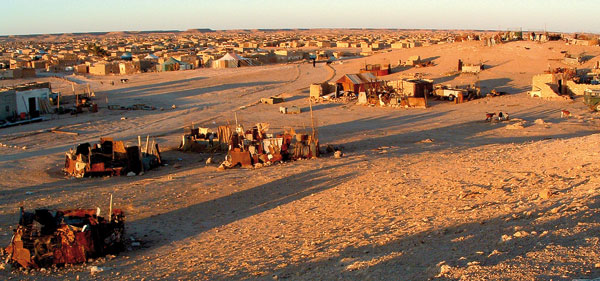 A Sahrawi association has demanded the opening, without delay, of an international investigation in the Tindouf camps to identify the perpetrators of crimes and abuses against the Moroccan Sahrawis.
A Sahrawi association has demanded the opening, without delay, of an international investigation in the Tindouf camps to identify the perpetrators of crimes and abuses against the Moroccan Sahrawis.
The Sahrawi Forum of Struggle against Torture and Racism has deplored the impunity enjoyed by the Polisario torturers and urged the international community to exert pressure on Algerian authorities and the Polisario leadership to force them to stop the crimes committed in Tindouf on Algerian soil and to prosecute the perpetrators of these abuses.
In a statement released Monday on the occasion of the International Day of Human Rights, the Forum called the UN Secretary General, peace-loving organizations and human rights advocates to open an investigation into the tragedy of the people sequestered in Tindouf camps, particularly the elderly, women and children.
These defenseless people are specifically exposed to abuses and excesses that are contrary to religions and to international conventions and practices, the statement said.
For 37 years, the Polisario torturers have been committing in total impunity “the most heinous, indescribable crimes,” the Forum members said.
According to the Sahrawi association, the blockade imposed on the Tindouf camps population entails serious consequences for the families. Many of these families are torn apart and subjected to blackmail, as their children are deported to other countries in an attempt to force the parents remain in the camps, awaiting the return of their children from indoctrination centers in Cuba or elsewhere.
Throughout these long 37 years, the Polisario gang has committed odious crimes and excelled in the art of torture, the lucrative trafficking of illegal immigrants and the enrollment of children into the armed militia of terrorist organizations operating in northern Mali, thus depriving them of their right to education. And all these crimes went unpunished, the statement deplored.
As an additional evidence to these atrocities and other forms of human rights violations in the Tindouf camps, many Sahrawis who visit the Moroccan southern provinces, in the context of the family exchange visits program sponsored by the High Commissioner for Refugees (UNHCR), refuse to go back to the camps and prefer to stay in Morocco and to reunite with their families.
In this vein, seven members of the Rguibat-Souaed tribe, who benefited recently from the UNHCR program, seized the opportunity of the trip to permanently settle in Morocco, their homeland, instead of going back to the hell of Tindouf.
